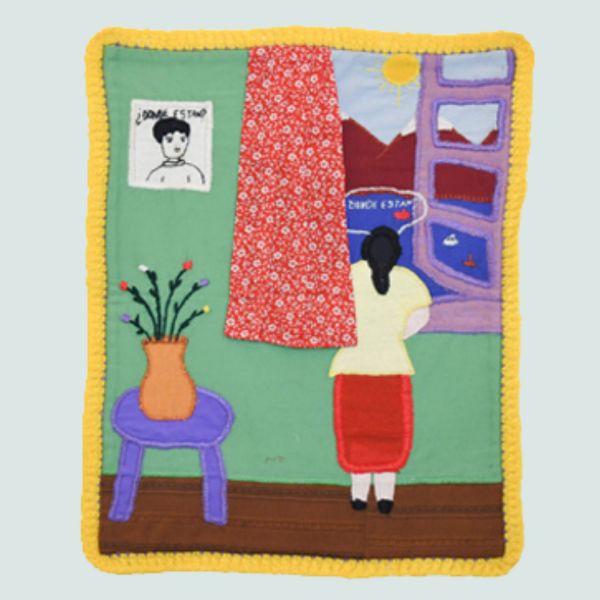Op 11 september 1973 pleegde generaal Augusto Pinochet een staatsgreep in Chili, waarmee hij de macht overnam van de democratisch gekozen president Salvador Allende. Deze coup leidde tot een zeventien jaar durende dictatuur die het land transformeerde naar een neoliberale economie en tienduizenden mensen tot gevangenschap, marteling en dood bracht. Duizenden anderen vluchtten het land uit.
In deze moeilijke periode verenigden vrouwen en familieleden van vermiste gevangenen zich om hun geliefden te zoeken en hun trauma’s te verwerken. Het borduren van kleurrijke arpilleras op gebruikte bloemzakken werd voor hen zowel een manier om hun dagelijks leven en de gebeurtenissen in het land vast te leggen als een uitlaatklep voor hun emoties en verlies. Door het gebruik van kleine stukjes stof, wol en andere materialen creëerden de arpilleristas krachtige beelden van de volkswijken en brachten zij het geweld en de mensenrechtenschendingen van het militaire regime aan het licht.
De tentoonstelling toonde een selectie van arpilleras die tussen 1975 en 1990 werden gemaakt. De expo werd gecureerd door Javier Perugachi en was een concept van Irma Prado Pizarro. Irma, die eind 1973 vanuit Chili naar België vluchtte, steunde de arpilleristas vanaf 1978 uit solidariteit. Voor het militaire regime waren de arpilleras een bedreiging; het bezit ervan werd als verraad beschouwd en bestraft. Daarom werden de kunstwerken vaak het land uit gesmokkeld. Irma smokkelde honderden arpilleras uit Chili en stelde deze op verschillende plaatsen tentoon, waaronder in Amsab-ISG.








